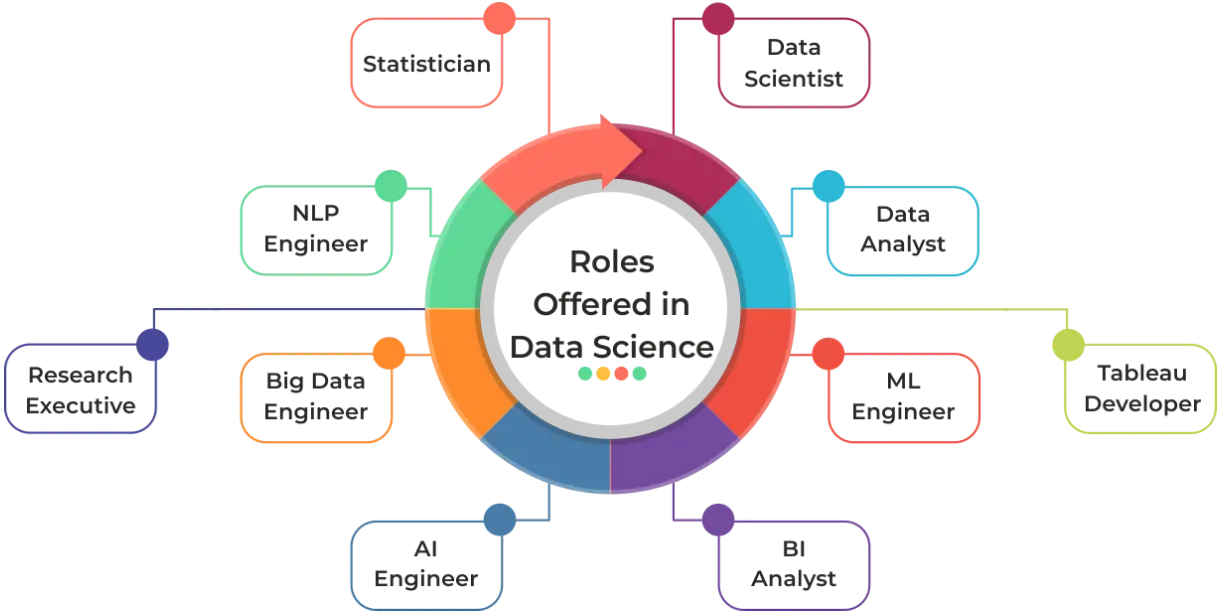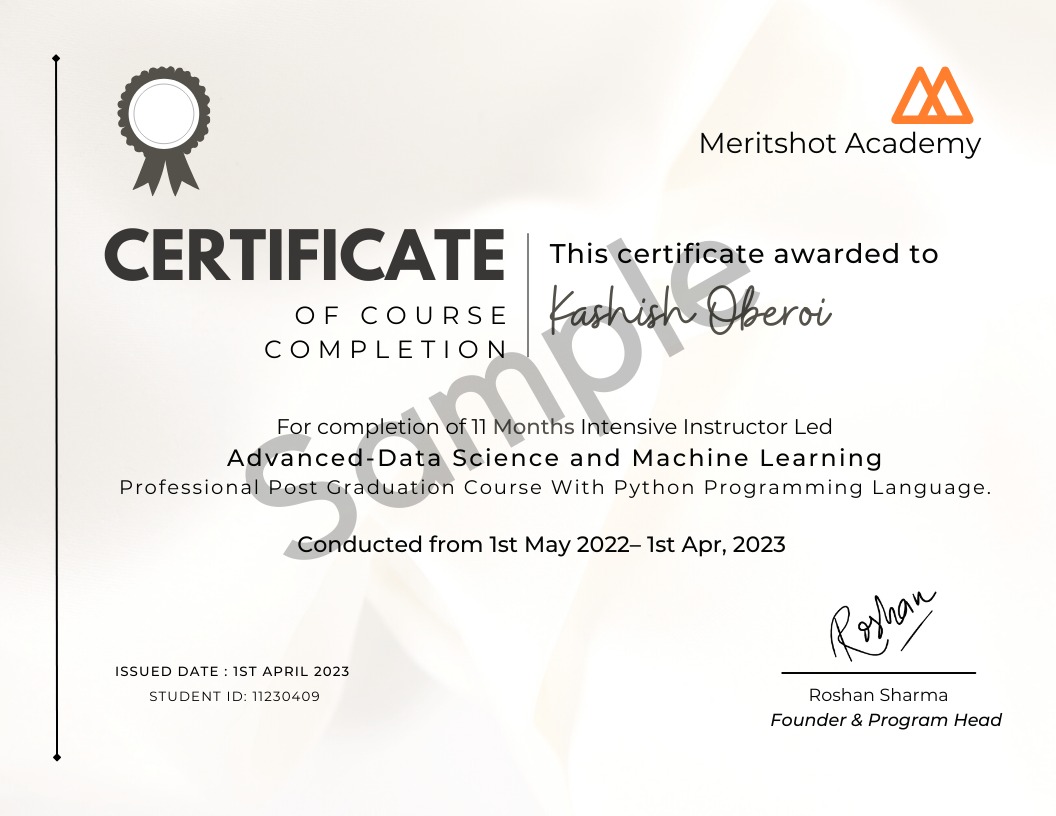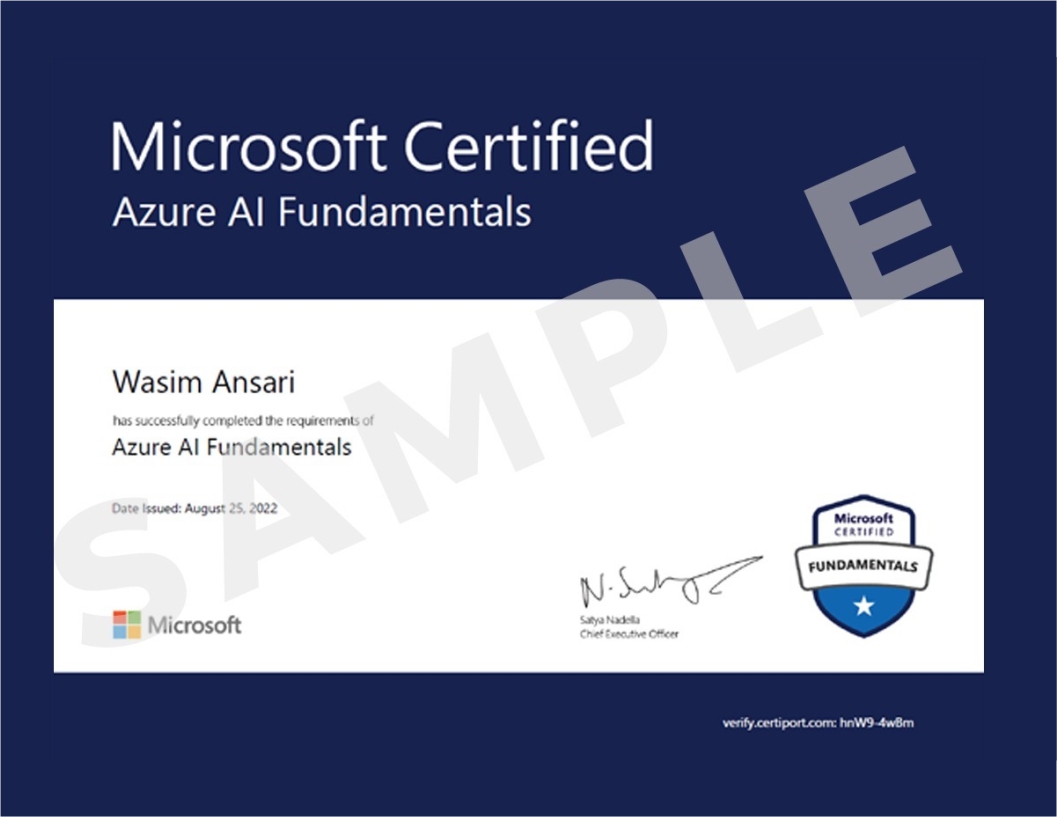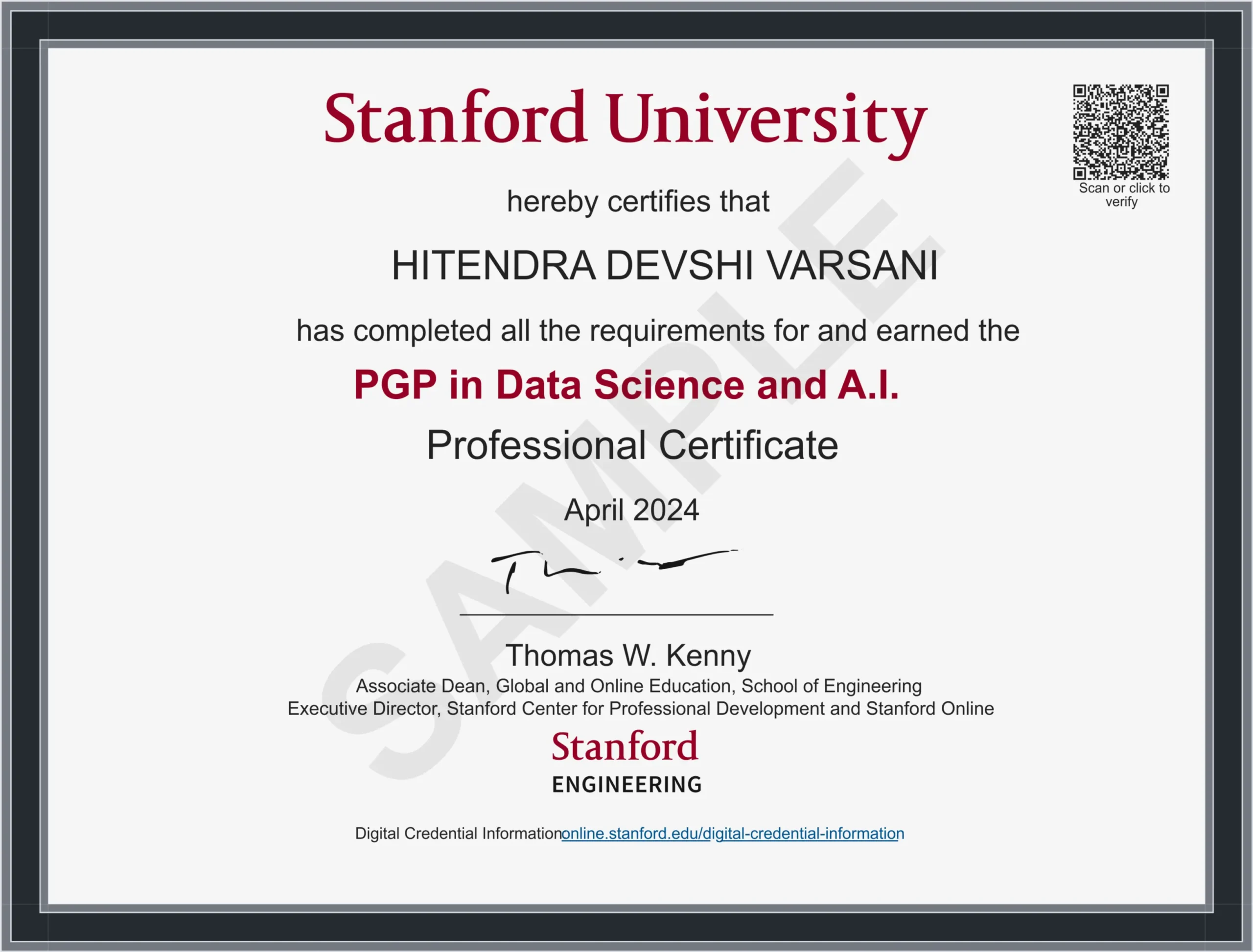In any case, If you fail to complete the course in a specified time of 11 Months, You can take extra time for completing your course. If you are stuck with the Projects or assignments, Our Teaching assistants and Instructors will help you to complete them as soon as possible.
Apart from that, If in the middle of the program, you meet with some uncertain circumstances, such as an accident or any kind of medical emergency then we will provide you a fresh batch as per your convenience.
Or, If you are unable to focus on the Lectures due to work pressure in the office or some personal reasons such as Marriage/Vacations/Family functions etc, we will provide you with Recorded Lectures. If you get stuck with the recorded lectures, you can avail personalized doubt sessions as per your convenience.




![]()




































































